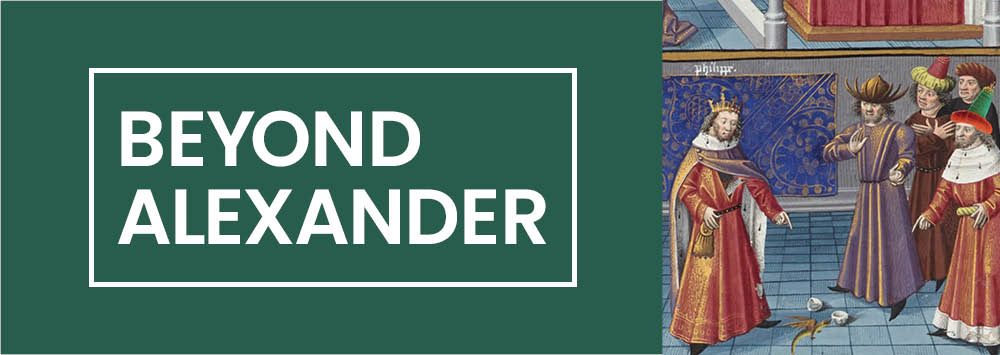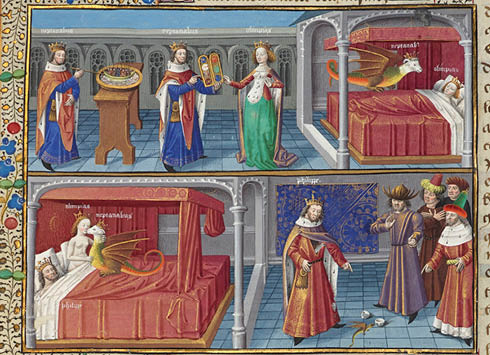
Beyond Alexander: The Impact of Alexander the Great in Greece, Persia, and Egypt
- Saturday, 4th November 2023
- 502 Lecture Theatre 3
- Hybrid event. Free, but registration is necessary.
- This event is open to all staff and students, as well as to the general public.
Register attendance for in person
Register attendance for online
Alexander the Great died in Babylon in 323 BCE, after conquering an empire that spanned from mainland Greece to the shores of the river Indus. The unity of these territories was short-lived, but the impact of Alexander’s presence in them would remain for the centuries to come. The Department of Archaeology, Classics and Egyptology at the University of Liverpool commemorates this ‘Year Alexander 2023’ with an exploration of the world of Alexander the Great from the perspective of some those lands he conquered: Greece, Persia, and Egypt. A panel of international scholars will examine how Alexander was regarded in each of these lands, which continuities and changes resulted from his conquest, and how the figure of Alexander became a legend that would become a true bestseller in the Middle Ages and beyond.

Schedule
10-10.15am – Intro (Bruce Gibson and Marina Escolano-Poveda)
10.15-11am – Guendalina Taietti (University of Haifa/University of Liverpool): ‘The best of buddies: Alexander the Great and Athens in Pseudo-Callisthenes’ Alexander Romance.’
11-11.45am – Christopher Tuplin (University of Liverpool): ‘Alexander in Egypt: The Persian Perspective.’
11.45am-12pm – Questions for the two previous sessions.
12-12.15pm – Short break.
12.15-1.30pm – Kim Ryholt (University of Copenhagen): ‘Alexander and Egypt.’
13.00-13.15pm – Questions.
13.15-13.30pm (approx.) – Closing remarks (Marina Escolano-Poveda).
Abstracts
Guendalina Daniela Maria Taietti (University of Liverpool-University of Haifa):
The best of buddies: Alexander the Great and Athens in Pseudo-Callisthenes’ Alexander Romance
Alexander the Great and Athens had a complex relationship due to several factors, among which the city’s firm beliefs in her democratic values and Demosthenes’ fervent attacks against the Macedonian kingdom. Although Alexander tried to please Athens and keep her on board with his Panhellenic campaign against the Achaemenid Empire, suspicion between the two remained, as suggested by the Alexander-historians.
With this paper I aim to shed light on the complex relationship between the historical Alexander the Great and Athens via the analysis of historiographical and epigraphical sources, and to explore how this relationship evolved when the legendary Alexander dealt with the city in the different recensions of the Greek Alexander Romance. In this analysis, I will offer a discussion of the possible reasons behind the Athenians’ acceptance of the legendary Alexander and show the Herodotean influences in Pseudo-Callisthenes’ narration of the political dialogue in Athens before the arrival of the Macedonian hero.
Christopher Tuplin (University of Liverpool):
Alexander in Egypt: the Persian Perspective
Alexander’s arrival in Egypt nearly 2355 years so terminated Persian ruler over the country. Does it make sense, then, to speak of a Persian perspective on what followed? In this presentation I hope to show that it does, whether by ‘Persian perspective’ one means (1) the views of Persians about what happened, (2) the views of other contemporaries (notably Alexander himself and the Egyptians) about how what happened sat in relation to the history of Persian rule in Egypt and the impact of that history on the present or even (3) views we might have about that question and the wider Achaemenid imperial setting that contemporaries were not in a position to formulate. Discussion will range across kingship, religion and administration (political, fiscal and military), and what is at stake is an assessment of Alexander’s treatment of Egypt. Put briefly: in deciding how to deal with his new conquest, did Alexander think more about Persians or Egyptians? Thirty years ago Stanley Burstein argued that Alexander’s policy was more characterised by continuity than rupture and that his conquest ‘can be more truly said to conclude the story of the Achaemenid empire than to begin that of the Hellenistic kingdoms’. Contemplating the Alexander story as a whole that is a not unattractive view. But is it the appropriate conclusion to an examination of the Egyptian events of 332-331 BC?
Kim Ryholt (University of Copenhagen):
Alexander and Egypt (prov. title)
Abstract to follow